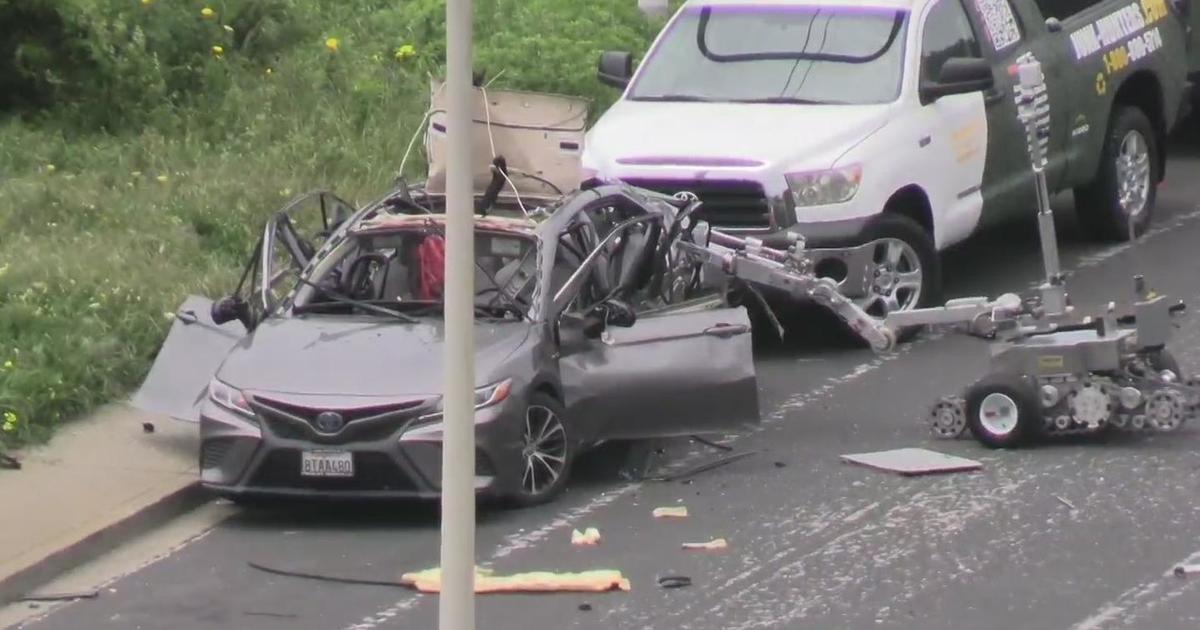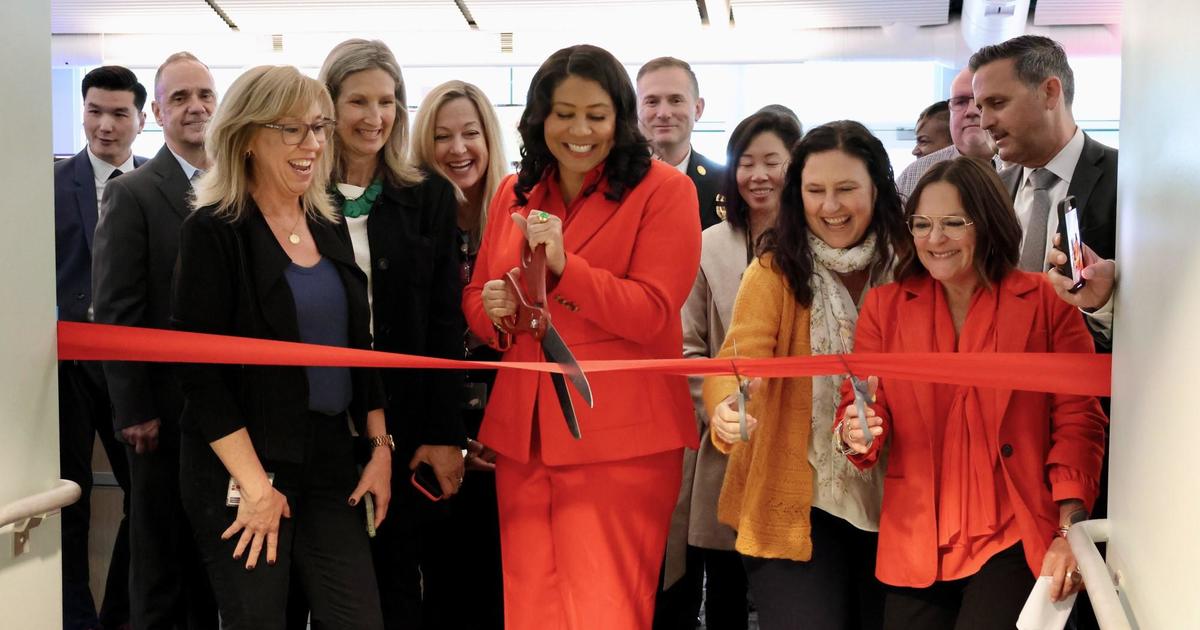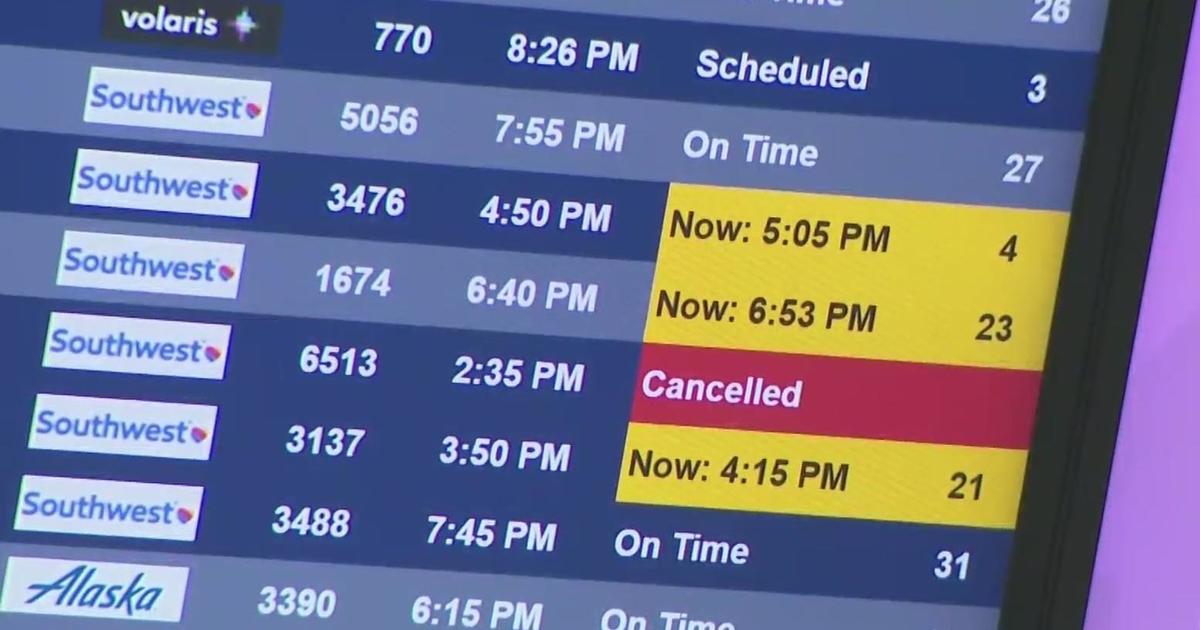Reopenings: San Francisco Bay Area Churches Deal With Changing COVID-19 Requirements
WALNUT CREEK (CBS SF/AP) -- After weeks of gathering to worship, Contra Costa County churchgoers enjoyed their final day of services inside local churches Sunday as restrictions were being reimposed during a surge in COVID-19 cases.
County officials announced that starting Sunday night indoor worship services are again prohibited. The culprit -- a recent surge in new cases.
The 7-day average number of new cases in the county jumped from 38 to 146 in one month's time, according to county data. Hospitalized patients increased from 17 to 54 during the same period.
"I think the public health officials in Contra Costa County are being sort of careful in not wanting Contra Costa County to go the wrong way. Of course you know Contra Costa was on the watchlist for awhile, then it got off, and now they're kind of looking at things more seriously once again," said UCSF infectious disease specialist Dr. Peter Chin-Hong.
The new order in Contra Costa is just the latest challenge the Bay Area faithful have dealt with since mid-March. Churches have been forced to not include singing in their services.
Easter services were held remotely. Many churches resulted to drive-in ceremonies. Weddings moved to Zoom and funerals were limited to just a handful of mourners.
It was only within the last 5 weeks that some Bay Area counties allowed indoor services with limited attendance and social distancing.
Earlier this month, the San Francisco City Attorney's Office sent a cease-and-desist order to the Catholic Archdiocese to follow the rules.
"Unfortunately, and contrary to increasing medical evidence that religious services without safeguards have caused serious outbreaks in many other cities and counties throughout the country, the Archdiocese has conducted both indoor and outdoor gatherings over the past
three weekends that violate the Health Order and jeopardize the health and safety of San Franciscans," the city attorney's office said in a letter to local Catholic leaders.
"These large gatherings of people indoors for a long period, in some instances reported without face coverings and with singing, place clergy, staff, volunteers and congregants alike at heightened risk of transmission of COVID-19, which can lead to serious illness and even death, and endangers the health of the Archdiocese's parishioners and the entire community," the letter continued.
Given the recent rise in cases and hospitalizations, Dr. Aragón's concerns about these risks have
only been heightened.
A few days later, state officials temporarily banned "indoor singing and chanting activities" at all places of worship, prompting some pastors to defy the rule.
Evangelical pastor Samuel Rodriguez said worshippers at his Sacramento megachurch joined in singing hymns on July 5, even as most of them wore face masks and obeyed social-distancing guidelines.
"To forbid singing in a church is morally reprehensible," Rodriguez said. "That is how we petition heaven."
The extent to which religious gatherings have contributed to the pandemic's toll may never be known with any precision. But there's no question they have played a role throughout, internationally as well as in the United States, even as myriad houses of worship halted in-person services for safety reasons.
Of the first wave of cases in South Korea in February, several thousand were members of the secretive Shincheonji Church of Jesus. Hundreds of other cases were linked to a Muslim missionary movement event in late February in Malaysia that was attended by about 16,000 people from numerous East Asian countries.
In the second week of March, before warnings and lockdown orders proliferated in the U.S., 35 of the 92 people who attended events at a rural Arkansas church developed COVID-19, and three of them died, according to a Centers for Disease Control and Prevention report issued in May.
In Incline Village, Nevada, along the north shore of Lake Tahoe, St. Patrick's Episcopal Church took advantage of a unique feature to relaunch scaled-back, in-person services this month: its outdoor mountain amphitheater chapel shaded by pine trees.
Church officials took precautionary measures such as moving the log-bench pews farther apart, capping attendance at 50 and requiring worshippers have their temperature taken, employ hand sanitizer and wear masks. There was no Eucharist or passing of the peace, and the usual post-service coffee hour was held by video conference.
"Good morning, children of God," the Rev. Sarah Dunn, the church's rector, said from behind a plexiglass screen, welcoming parishioners back to the socially distanced service July 5 after 16 Sundays apart. She acknowledged feeling "mixed emotions": apprehension as the virus remains a threat, but joy at being able to gather in the sacred space.



